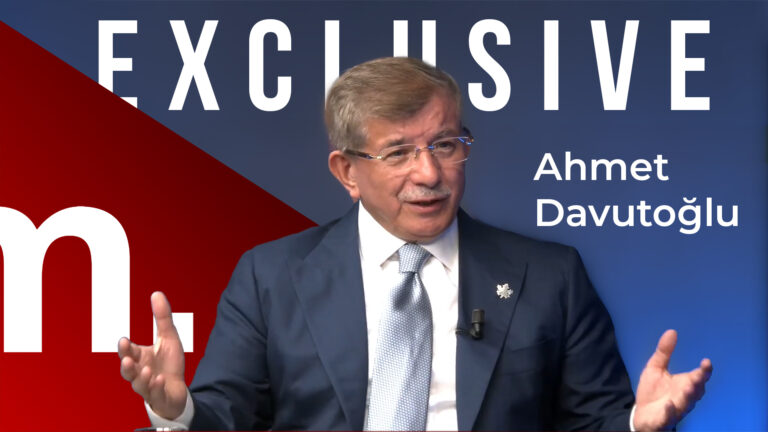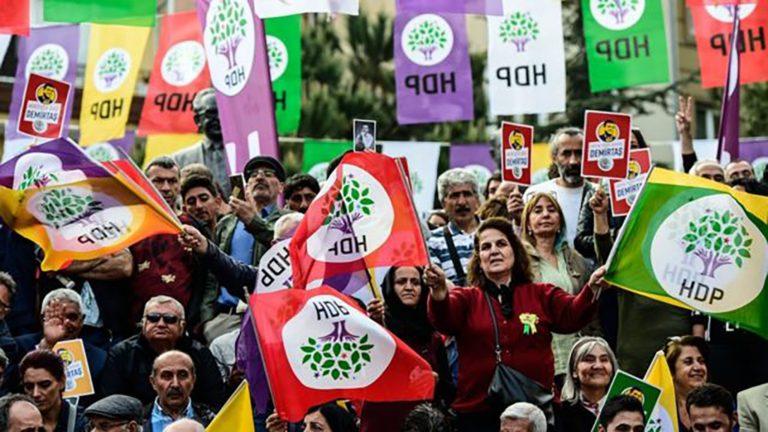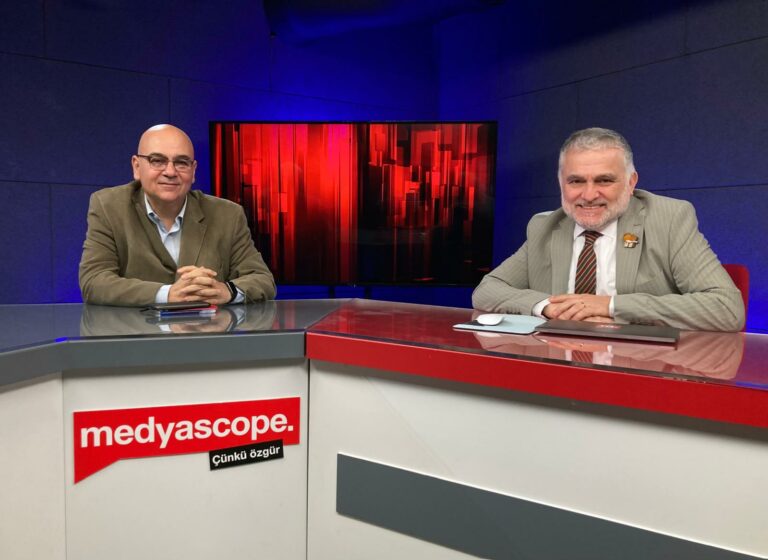Translated by Helin Sayan
During the interview that he gave to the daily newspaper Karar, the former president Abdullah Gül defended parliamentary democracy, and openly gave his support to Ali Babacan (deputy of the Grand National Assembly of Turkey) and declared that he was “proud” of the events of Gezi (urban park of Istanbul next to Taksim square, where Gezi Park protests occurred in 2013). However, the most important point to retain was the fact that he said that political Islam was going through a global collapse.
Hello, good morning. The former president Abdullah Gül agreed to give an interview to the daily newspaper Karar. Ahmet Taşgetiren, Elif Çakır and Yıldıray Oğur, the three authors of the daily paper Karar who have interviewed Ali Babacan, Ahmet Davutoğlu (leader of the Future Party [Gelecek Partisi]) and Ekrem İmamoğlu (member of the Republican People’s Party, mayor of Istanbul) before, went to Abdullah Gül’s office this time to interview him. Subjects like his support to Ali Babacan’s party, the necessity of a return to a parliamentary system and his words (“I was proud of Gezi”) were highlighted. The other emphasized point was the collapse of political Islam at a global level. I especially want to talk about these words. So, there is a meaning to the fact that Abdullah Gül, a person who belongs to political Islam, considers that it is in a situation of failure in Turkey, in a situation of global failure, of big crisis, as I have been explaining for a long time in my daily commentaries for Medyascope (it must have been five years, since we have started).
Of course, after his words, some could ask themselves about Abdullah Gül’s Islamism. Nevertheless, I can confirm that within the Justice and Development Party (AKP), even the Welfare Party (Refah Partisi), one of the names who had the most organic link with the Islamist movement was Abdullah Gül’s. During his early years, Abdullah Gül was part of the circle of the review Büyük Doğu [Great East] formed by Necip Fazıl Kısakürek (Islamist ideologist, who died in May 25, 1983), who was even more important to the Islamist movement. I remember that in 1991, when I went to Kayseri as a journalist and when Gül represented the Welfare Party for the first time during general elections, we discussed for hours with the group which accompanied him. The landscape of Kayseri was stunning, to tell the truth (I know that the impact of Büyük Doğu and Necip Fazıl’s influence are still big there). It was due to the fact that among the Islamist average of Turkey, there was a group of intellectuals. They were generally middle-aged people. And Abdullah Gül was a member of that group which had been in favor of Necip Fazıl’s Islamism from the beginning.
Obviously, Tayyip Erdoğan and Abdullah Gül’s Islamism were not the same, there were differences. But we have to assume that he is speaking from within Islam.
Not calling Abdullah Gül an Islamist anymore is another story. In other words, I imagine that it is impossible for someone who followed the precepts of Islamism yesterday, but not today anymore, to consider himself as still being in that perspective, while affirming that anyhow, the movement of which he was formerly a member is collapsing globally. In fact, it can be said that this rupture dates back much further. However, at the time, he did not make his distance as clear as he does these days. And finally (as for as me, very late, and he is wrong to act like this), he clarified his situation, his position with regard to this. What he wants to say is that Islamists in particular have failed to guarantee freedoms. It is not the word that he uses, but it was the most important topic.
From its beginnings, Islamism has nowhere been seen as an ideology in peace with democracy. There were, in Asia and North Africa, leaders or thinkers who wanted to establish a link between Islam and democracy. Nonetheless, a big majority rejected these people. The reason to this is the fact that democracy was considered blasphemous (kufr), and as a system of unbelievers. The emphasis was put on “governing with what Allah revealed”, and accordingly, democracy was regarded as being a humanistic ideology. Nevertheless, after a certain time, in an environment where Islamism gains power, especially from a social point of view, in North Africa, the Arab world, in Asia, even in Sub-Saharan Africa, despite a complicated relationship between that ideology and democracy, a turning point in favor of the latter was expected, hoped-for. It was even believed for a moment.
It was during the revolts against authoritarian and totalitarian regimes of the Arab Spring in particular (of course, all these uprisings tended towards democracy) that Islamists were central stage. Nearly everywhere, wherever government was overthrown, they were sometimes in the foreground, sometimes in the background. Tunisia is one of those places. Egypt is another. Notwithstanding, what Ikhwān al-Muslimūn,in other wordsMuslim Brotherhooddid, tried to do essentially in Egypt, that is to say disregard pluralism (their incompetence paved the way for the coup d’état of July 3 2013 against Mohamed Morsi); trying to establish a new authoritarian regime under their own control, after they took power, proved that political Islamism does not add much to our world and to Muslim societies today.
Being a movement of rejection, of opposition was the biggest issue of Islamism. It was mainly at its appearance that the ideology rose up against colonialism and neocolonialism, and, in accordance with this, it had a very strong national orientation. Later, after the creation of nation states, Islamism was still criticizing the authoritarianism of these countries. However, in spite of their reproaches against authoritarianism, or in some cases totalitarianism, Islamists did not put democracy at the center of their speech. In other words, they did not choose democracy as an alternative. Instead of this, their choice was a very ambiguous, nonsensical system, based on sharia. Within what they called an order based on sharia, there was generally not a lot of place, even no place for freedoms, pluralism.
Thus, Turkey could really have been an exception. Indeed, it has always had a privileged position in the Islamic world. For a very long time, since the Ottoman Empire, Turkey has been a country having a particular place within the Islamic world. Turkey’s place in the Islamic world was exceptional due to the relationship it had with the West, its geographical position, its population in the sense that there were different ethnic groups living together, different religious groups and non-religious groups.
Medyascope'un haftalık e-bülteni
Andaç'a abone olun
Editörlerimizin derlediği öngörüler, analizler, Türkiye’yi ve dünyayı şekillendiren haberler, Medyascope’un e-bülteni Andaç‘la her çarşamba mail kutunuzda.
Another exceptional facet of Turkey was of course its more or less good trial of democracy, secularity and secularism, in the Islamic world. Another exceptional aspect of Turkey’s position within the Islamic world is that it allowed for a secular experience, in one way or another. In this context, Islamic movements became candidates of Turkey’s administration: first on a local level, then as part of Turkey’s coalition government and, finally, with the AKP, they came to power on their own. These processes are like a laboratory for the Islamic world, in terms of whether or not an Islamic movement can solve the problems of a country. Turkey became a laboratory for this, especially during AKP’s time in power.
As what Abdullah Gül presented in his speech, during the first years of those events, their evaluations have been positive, seen from the outside. At the time of the candidacy of Turkey to the European Union, reforms, the steps to resolve the Kurdish problem…all of these have sort of given strength to people who supported the possibility of an even more affirmed democratization within Islamism. But afterwards (the events of Gezi were probably the true beginning of this), we witnessed the orientation of the Islamist movement, although they did not call themselves as such, to an authoritarian system. It is perfectly visible that under the leadership of Tayyip Erdoğan, the movement chose security and survival as a classical and well-known authoritarian method of governance. With this in mind, it has been clearly proved that Turkey was not the place where political Islam was going to serve as a solution to problems.
As a consequence, some people of Erdoğan’s government can think, as he says, that they have to “take the tramway of democracy to go where it is needed”, basing themselves on the instrumentalization of democracy, its use, among other as a tool. Yet, I think and am waiting, with time, for a majority of people who had these ideas to realize that democracy, is, in reality, the best regime that can be applied in the world and in Turkey. Things really went out of control with the fact that Erdoğan made that tramway or that train of democracy derail, especially after the events of Gezi. However, there is a problem here: that situation has taken hold little by little and Turkey has diverted from democracy, the rule of law, bit by bit. And all this time, all the ones who are complaining about it today (including Abdullah Gül, Ali Babacan and Ahmet Davutoğlu, in a sense), have been quiet during all this period when that divergence was happening. They did not interfere. They did not say “us, we did not set out for that”. One way or another, with maneuvers that they used not to show their weaknesses, maybe with the idea that they would succeed to settle some things with time (this thought is very naive and unrealistic), they have postponed lots of things again and again. Whereas, today, they are in a sort of situation in which they mention all of this, on the whole, but always reticently.
They are not very believable in their change of position, especially to those parts of the population who do not know them well.
In the interview that Abdullah Gül gave to the newspaper Karar today, if we mix what he said about diverse topics, we can see a prospect overall. But there are still big flaws, here. Nonetheless, even like that, we still cannot observe that Ali Babacan has adopted a similar position. For instance, his words in his last speech regarding Selahattin Demirtaş (former deputy of Istanbul who was sentenced for four and a half years of prison for “terrorist propaganda” in September 2018) and Osman Kavala (a businessman who has been accused of “attempt to overthrow the government” during the Gezi Park protests in 2013), did not correspond with democratic values and with fundamental rights and freedoms. Another example, today, the Gezi case is judged. A verdict may also be given. Hurried sentences will perhaps be pronounced, in order to rapidly take advantage of the European Court of Human Rights. I do not hope so, but plenty of people say pessimistic things about it. Within this trial, Ali Babacan and Ahmet Davutoğlu’s names as complainants are also mentioned. Yesterday, Ahmet Davutoğlu declared that he had nothing to do with the Gezi case, without talking about the protests. There, he did not, could not say “I, have nothing to do with the Gezi case, I do not complain about anyone”. They keep pretending. I have not witnessed any explanation from Ali Babacan, until now.
If Babacan or Davutoğlu could have gone to Silivri today and say these, things would have been different. But if they believe that while not telling things clearly, alluding and so on, they still can convince people that they respect democracy, fundamental rights and freedoms, they are totally mistaken, in my opinion. What would happen if so? It would be an incredible event, that would be written in History. It would indubitably be a part of the democratization of Turkey. So why are they reluctant? Their own ideas bother them, the ideas that they are always defending embarrass them. The harsh response that Erdoğan may give to that scares them. So, it is in order not reawaken “malicious remarks”. Yes, by doing so towards democracy, especially nowadays when it is so essential to Turkey, using approximate words, innuendos, that is to say verbs without subjects, it really cannot be possible to head for it.
Yes, Islamism is over. But the gesticulations of the former Islamists who cannot make their own way have not ceased, their crisis has not ended. And it will not stop so easily. The reason is that they are still trying to make their way through, despite their background, their worry translated into questions like “what are they going to tell?”, and particularly “what is Erdoğan going to answer?” However, the conditions of Turkey are not really favorable for the policy that they are trying to apply, that they are attempting to develop so carefully, without rushing, calmly and, how can I put this, taking as much of their time. Which means, if we have to repeat ourselves, that they have started to understand and finally admit, them too, that political Islam has ended. But what are they setting up against that? What is their contribution…? All right, we see that they are defending universal values like democracy, fundamental rights and freedoms. But the political actors defending such ideals are not taking clear, concrete steps in order to be conclusive in their position. The ones who establish parties or the ones planning on establishing one must be clear, practical enough to be credible, or else they will not be conclusive. Yes, that was all that I wanted to say, goodbye.














